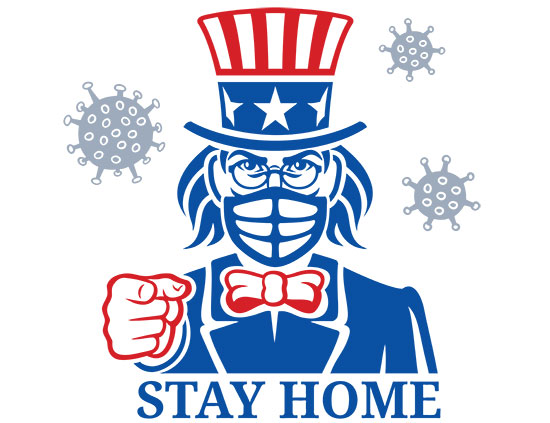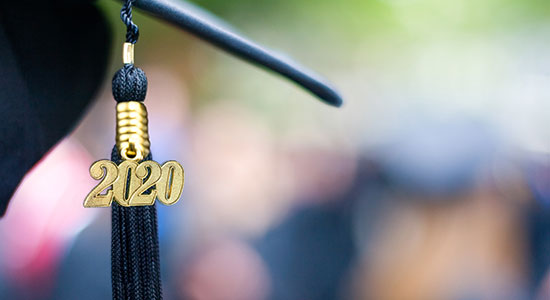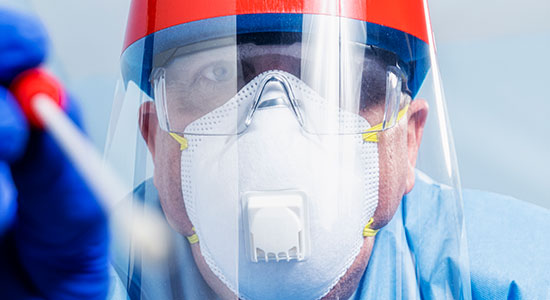Constitutionally Speaking
COVID-19 and the Constitution

Years from now, COVID-19 and the Constitution may be an elective course in many law schools.
Significant constitutional issues, including the right to travel and assemble, are affected by government-imposed safe-at-home orders, including in Wisconsin.
The conflict between constitutional rights and government authority during public health emergencies began to bubble up in April (and is expected to boil over as you read this and stay-at-home orders are extended).
In a recent Forbes article, “Are ‘Stay At Home’ Orders Constitutional?” lawyer and political science professor Evan Gerstmann explored the topic, noting the U.S. Supreme Court “has had little to say about state power to override people’s liberty during epidemics,” but noted that strict scrutiny would likely apply in such cases.
“Preventing the spread of a pandemic is obviously a compelling government interest,” Gerstmann wrote.
“Therefore challenges to any restrictions would turn on whether they are narrowly tailored to do that. One reason they may not be narrowly tailored is if they are egregiously excessive. But the courts will likely grant the government a lot of latitude on that question.”
For another perspective, see “Due Process in the Time of Coronavirus,” by attorneys Grant Killoran and Christa Wittenberg in the April 2020 Wisconsin Lawyer.
Got a Nugget to Share?
Send your ideas for interesting facts, trends, tips, or other bits and bytes to wislawmag@wisbar.org, or comment below.
By the Numbers
6
The number of women who will take the Wisconsin Supreme Court bench next term.
The seven-justice court’s newest member will be Dane County Circuit Court Judge Jill Karofsky, who defeated incumbent Justice Daniel Kelly in an election in April.
According to The Badger Project, Wisconsin will have the highest ratio of female high court judges in the country. “Of the 327 sitting state high court justices in the U.S., 125 are women, for a national percentage of 38 percent,” wrote Peter Cameron.
The highest courts in all 50 states have five, seven, or nine judges, and the only courts that come close to Wisconsin’s gender makeup are in Oregon and Washington.”
On the Radar
States Contemplate Emergency Diploma Privilege Amid Pandemic

Wisconsin is the only state that allows admission to practice law without taking a bar exam, referred to as the “diploma privilege,” for graduates of the U.W. and Marquette law schools. But other states may offer emergency diploma privileges amid the public health emergency.
New York, Connecticut, and Massachusetts were among the first to postpone their July bar exams to the fall, and other states are sure to follow.
“The move to fall bar exams is distressing many law students, who fear additional postponements and cancellations if the COVID-19 pandemic drags on as some public health officials predict,” wrote Karen Sloan for Law.com. “Those changes could put their professional future on hold for the foreseeable future.”
In response, law students across the country have circulated petitions and letters calling for an emergency diploma privilege to waive them in with no bar exam.
It is not clear if any states have yet done so. But in a recent ABA Journal article, “Bar Exam Does Little to Ensure Attorney Competence, Say Lawyers in Diploma Privilege State,” former State Bar of Wisconsin President Franklyn Gimbel (and others) suggested bar exams have little bearing on a person’s ability and character.
“A lot of the things lawyers get in trouble for ethically are not about whether you were smart enough to pass a bar exam; it’s were you honest enough for other people to put their lives in your hands, and is your judgment good enough to spot conflicts?” Gimbel told the ABA Journal.
Source: Law.com; ABA Journal
Tech Tip
8 Tips to Maximize Your Internet Broadband

The Federal Communications Commission (FCC) recently published updated Broadband Speed and Household Broadband guides.
As the number of household users and usage increases, so does the need for higher megabits per second (Mbps) of broadband speed.
Here are some tips for maximizing your broadband speed.
-
Contact your internet service provider to test or upgrade your broadband speed. The FCC recommends at least 25 Mbps broadband speed for high usage from two users or devices at a time.
-
If your cellular data plan has unlimited data, ask members of your household to use cellular data only during periods of high demand.
-
Switch video streaming services from high definition video output to standard definition video output.
-
Limit online gaming and streaming service usage.
-
Password protect your router to prevent unauthorized use from others.
-
Connect your device directly to your router versus using a wireless connection.
-
Consider temporarily purchasing and using wireless hotspots.
-
Limit the number of devices that can connect to your router during periods of high demand.
Source: Christopher Shattuck, State Bar of Wisconsin Practice Management Advisor (Practice 411™)
Good Ideas
Lawyer Makes Face Shields with Transcript Covers

A lawyer in San Francisco was cleaning out old files when it dawned on him: he could use the plastic covers on old deposition transcripts to make plastic face shields for hospital workers fighting COVID-19.
Attorney Steven McDonald, partnered with a general contractor to convert the deposition covers to face masks, using other supplies such as elastic bands and foam. By mid-April, a group called Saving Face – working with McDonald – had made more than 2,000 face masks as lawyers and others donated supplies.
“The plans for the shields come from an open-source site by a group of face shield makers at the University of Wisconsin at Madison,” the ABA Journal reported.
The open-source site is at making.engr.wisc.edu/shield/.
Quotable
“Today, real courage is about reaching out and asking for help when you’re struggling.”

– Bob Carlson, American Bar Association president (2018-19), in a video by the ABA’s Commission on Lawyer Assistance Programs (CoLAP).
In 2016, CoLAP helped launch the National Task Force on Lawyer Well-Being, a participating organization in National Lawyer Well-Being Week (May 4-8, 2020).
“The aim of Well-Being Week is to raise awareness and encourage action across the profession to improve well-being for lawyers and their support teams,” according to the task force’s website, which includes many resources.
National Lawyer Well-Being Week will come and go, but the State Bar of Wisconsin Lawyers Assistance Program (WisLAP) helps lawyers, judges, law students, and their families, all year long. WisLAP offers the following free, confidential services:
- Initial evaluation
- Referrals
- Peer assistance
- Consultation
- Education, including CLE programs
- Outreach
- Intervention
WisLAP 24-hour Helpline: (800) 543-2625
